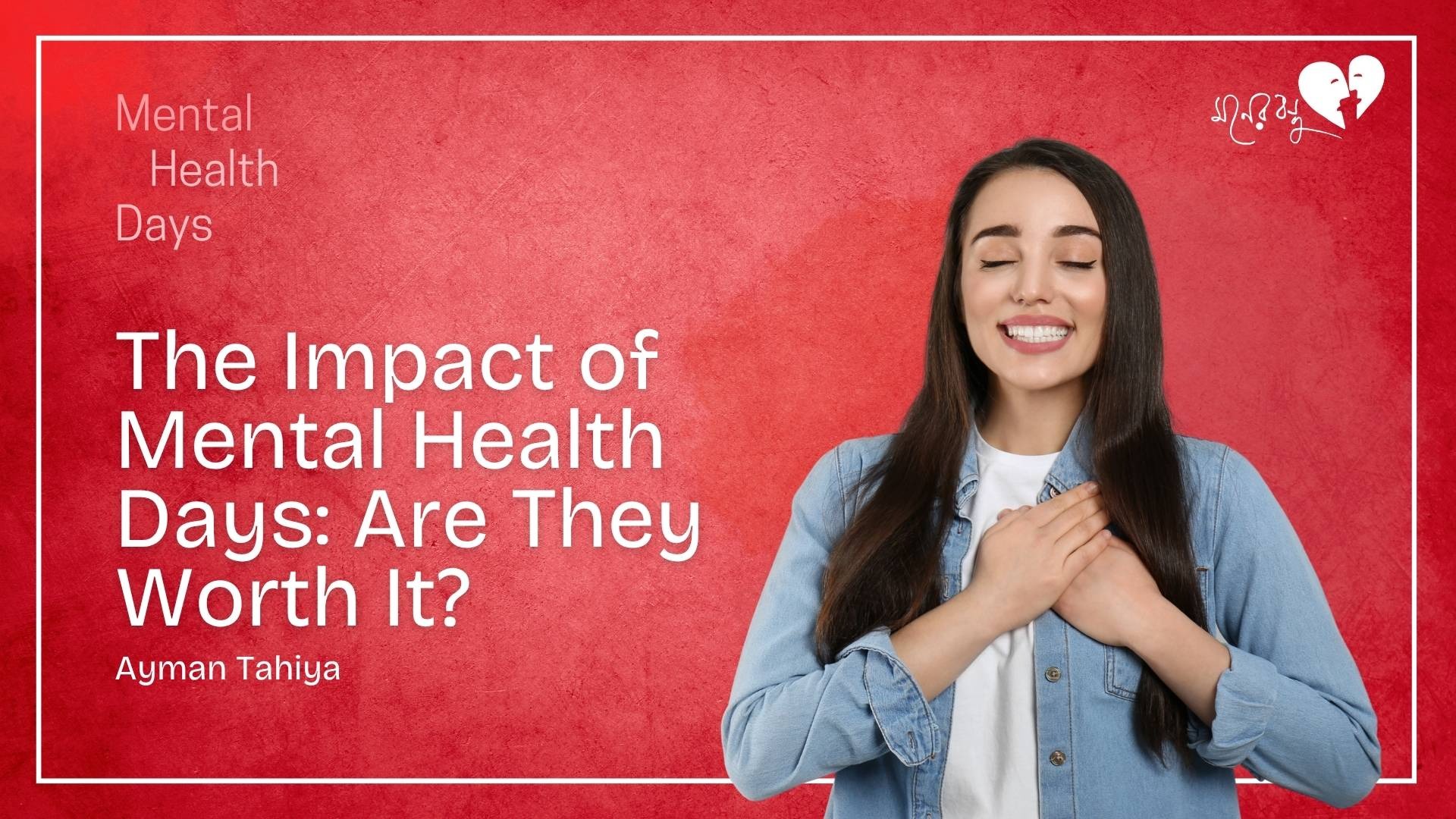
Ayman Tahiya
For physical illness, rest is understood. But when our minds need the same care, hesitation creeps in. We fear judgment, guilt, or the idea that taking time off makes us less productive.
Yet “worth it” shouldn’t only mean getting things done. It should also mean giving yourself permission to recover, reflect, and simply be human.

What a Mental Health Day Really Looks Like
A mental health day isn’t about luxury or perfection. For some, it’s quiet – staying in, listening to music, or finally booking that therapy session. For others, it’s small acts of grounding, such as cooking a meal, taking a short walk, or tidying a space that feels overwhelming.
These are not escapes; they’re maintenance. Even short, intentional breaks have been shown to reduce stress and restore focus.
Why People Still Hesitate
Many still feel unsure about taking time off for mental health. Some fear being misunderstood by their employers or families. Cultural expectations often praise pushing through exhaustion rather than pausing to rest.
But this mindset can lead to deeper burnout later. When rest is constantly delayed, it often turns into longer and harder recovery periods.
The Clear Benefits
Mental health days don’t just feel good, they work.
Research shows that students who are allowed excused mental health days have better attendance and focus.
In workplaces, employees who take time to recharge return with more clarity and creativity.
Rest isn’t the opposite of productivity, it’s what sustains it. Mental health days are a starting point, not a final solution.
Making the Most of Your Day
Use this time intentionally.
Disconnect from work, silence notifications, and avoid “catching up.”
Do something that restores you: a nap, a walk, a chat with someone who listens without judgment.
At the end of the day, reflect gently: Do I feel a little more at ease? What might I need next? The goal is to calm your system, not to return as a perfectly recharged machine.
Final Thoughts
Does a mental health day help?
Yes. Not because it erases problems, but because it offers space to breathe, reset, and regain perspective.
Every time someone takes a mental health day without apology, it helps normalize the idea that rest is not indulgence — it’s essential.
এই ব্লগের একমাত্র উদ্দেশ্য মানসিক স্বাস্থ্য বিষয়ক সচেতনতা বৃদ্ধি করা। পাঠকের বোঝার সুবিধার্থে এতে কিছু প্রতীকি ঘটনা ব্যবহার করা হয়েছে।
এই ব্লগ বা এর কোনো অংশ পড়ে কেউ আঘাতপ্রাপ্ত হলে তার জন্য লেখক ও ‘মনের বন্ধু’ দায়ী নয়। মনের ওপর চাপ অনুভব করলে বা মানসিকভাবে ট্রিগার্ড অনুভব করলে দ্রুত মনের বন্ধু বা যেকোনো মানসিক স্বাস্থ্যবিদের সাথে যোগাযোগ করুন।
মনের বন্ধুতে কাউন্সেলিং নিতে যোগাযোগ করুন: ০১৭৭৬৬৩২৩৪৪।
📍: ৮ম ও ৯ম তলা, ২/১৬, ব্লক-বি, লালমাটিয়া, ঢাকা

Mental stress is our emotional and psychological response when we feel overwhelmed, pressured, or threatened by challenging situations.

Though the era has moved on, the society of our country is still dark. I am saying this because almost all families in our country think “What is mental health again? What is depression?

In the bustling streets of Bangladesh, amidst the vibrant culture and rich traditions, lies a silent struggle that often goes unnoticed—the mental health challenges faced by Bangladeshi men. While the

এই ব্যস্ত নাগরিক জীবনে ‘ছুটি’ মানে মুক্তি, আনন্দ, বিশ্রাম! ছুটি শুনলেই মন ছুট লাগাতে চায় দূর তেপান্তরে! তবে অনেক সময়ই দেখা যায় ছুটির দিনেও ব্যস্ত থাকতে হচ্ছে দাওয়াতে, আপ্যায়নে, সামাজিকতায় আর আতিথেয়তায়